-

The SDGs in the light of the Digital Transformation
In the framework of The Connected World – one of the four interdisciplinary profiling themes of Vrije Universiteit Amsterdam’s research…
-
Digital Humanism Workshop: A Paradigm Shift in Computer Science
Organizers: Hannes Werthner, Helga Nowotny, Ludger Hagedorn, Thomas Haigh, Agata Ciabattoni, Christiane Wendehorst, Claudia Plant, Hans Akkermans, Stefan Woltran See…
Human-AI Collaboration: A Student-Centered Perspective of Generative AI Use

Porto, 23 October 2024 — The increasing adoption of generative AI (Gen AI) is largely impacting education and learning. Liana Razmerita from Copenhagen Business School is studying the evolving human – AI relationship in knowledge-intensive tasks and learning. She presented her study at ECEL (European Conference on e-learning) in Porto on 23 October. Abstract – Based on mixed data collected from business school students, the article explores the evolving relationships ... Read more
Hybrid Learning Workshop in Vienna
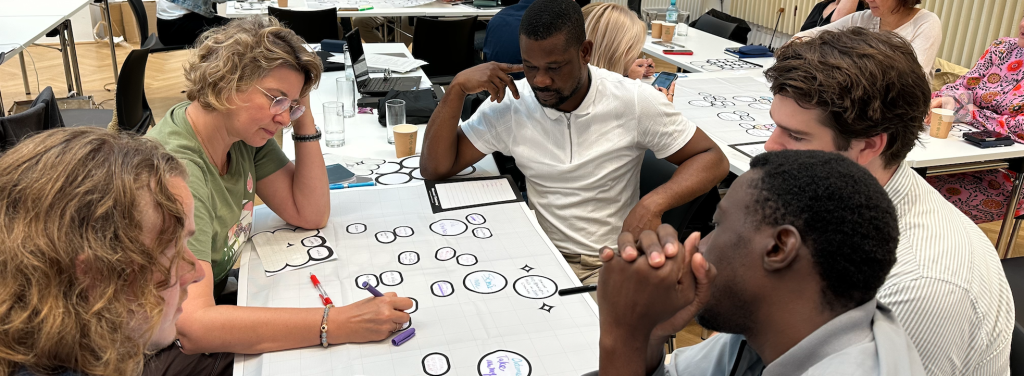
During Euridice’s biannual meeting held in Vienna on the 9th and 10th of September 2024, the Institute for Lifelong Learning at the University of Barcelona (IL3-UB) delivered a workshop on Hybrid Learning. This 3-hour session aimed to provide teachers and professionals with practical insights and hands-on experience in creating effective hybrid learning lessons and suitable technological environments. To begin, participants explored key concepts of hybrid learning, as well as the ... Read more
Digital Humanism Summer School Vienna, 2024
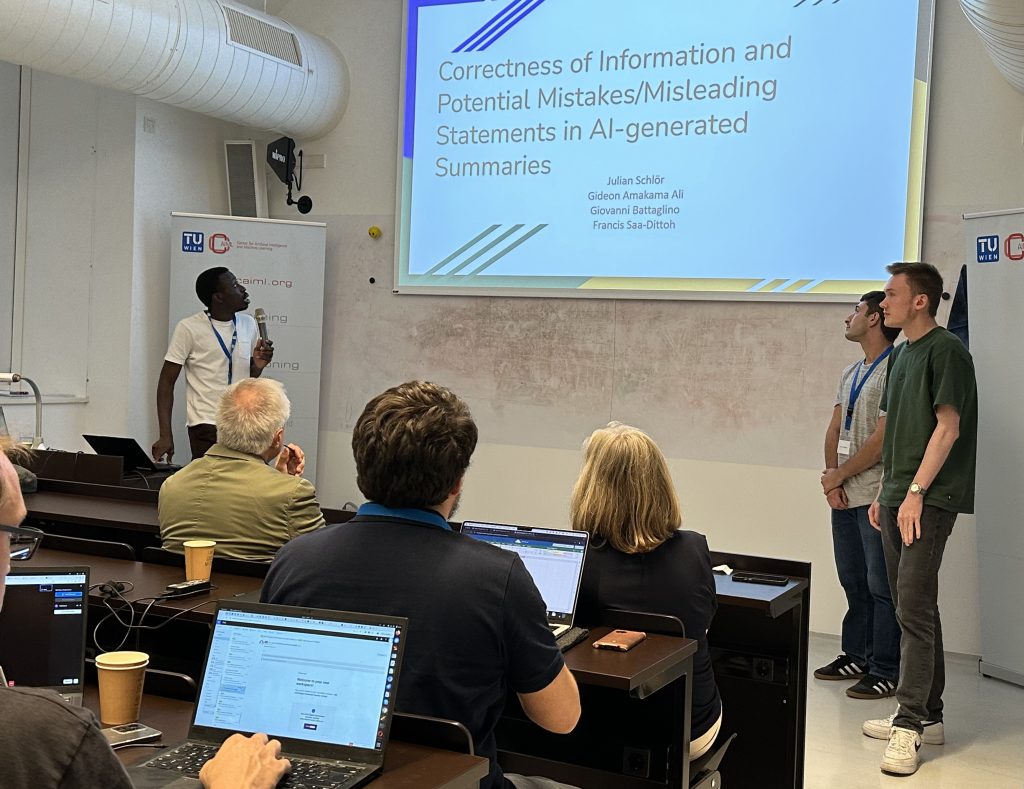
The EURIDICE project is proud to present a short account on the 3rd ACM Digital Humanism Summer School 2024. Digital Humanism is an interdisciplinary initiative that examines the complex interplay between technology and humankind, with the aim of creating a better society and placing humans at the centre of technological innovation. Digital Humanism breaks down disciplinary silos, by integrating humanities, social, technical, and engineering sciences. The Digital Humanism Summer School, ... Read more
EURIDICE’s biannual in Vienna: co-creating hybrid teaching experiences
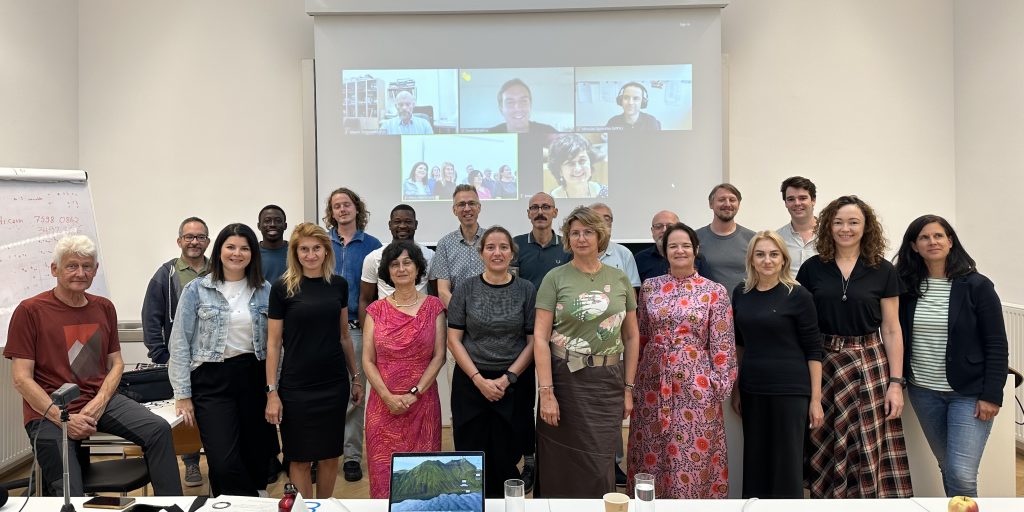
Vienna, 11 september 2024. We look back at a successful second biannual of EURIDICE’s partners, at the invitation of TU-Wien, following up on the first biannual, kindly hosted by the Faculty of Social Sciences of UNINA in Naples, on 31 May this year. The aim of the workshop was to discuss the ongoing design and accreditation of the European joint master Digital Society, Social Innovation and Global Citizenship. In addition ... Read more
by
Karazin University offers new selfstanding online modules

Kharkiv, September 2024 — Karazin Kharkiv National University in Kharkiv, Ukraine has opened two new self-standing, online, master-level courses this year, the teaching is starting early October 2024, for 10 weeks and 2.5 ECTS. The course Cybersecurity law and society addresses the extent to which these threatening phenomena are prevalent in Ukraine and the world, how they are countered, and which countermeasures are effective. Digital technologies have become an integral ... Read more
FEBS Conference on Inclusive Development and Sustainability, UNIMAS Sarawak, Malaysia
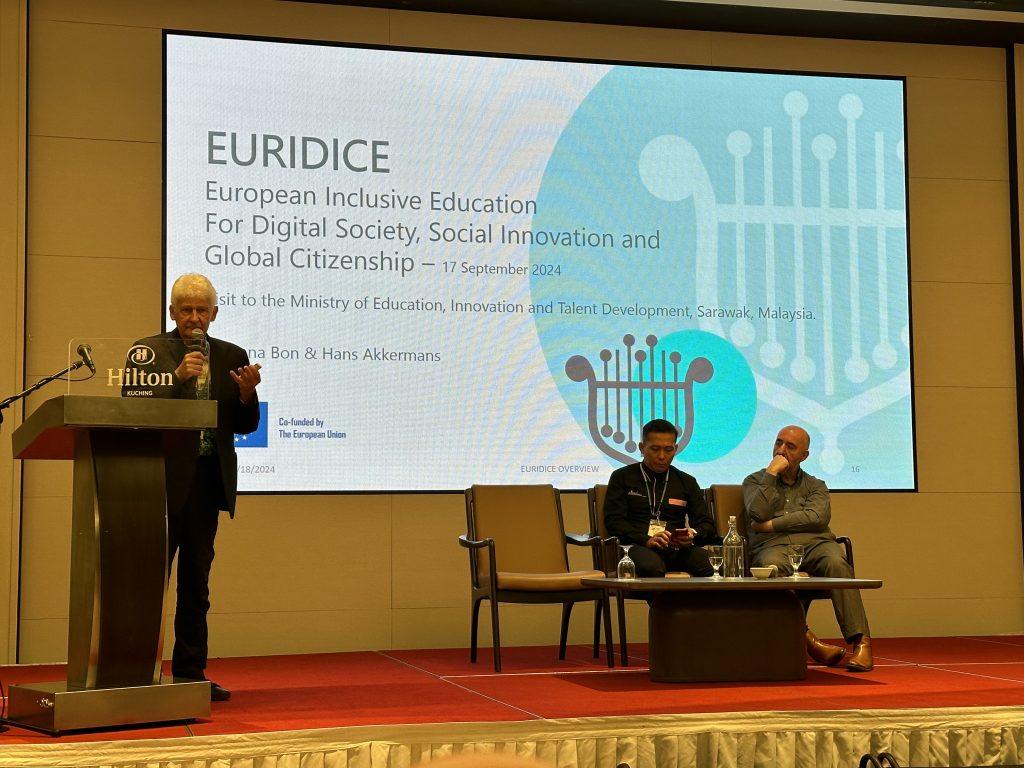
Kuching, 18 September 2024 – Hans Akkermans presented a key-note at the three-day academic FEBS Conference 2024, Inclusive Development for a Sustainable Future, at the invitation of our partners at UNIMAS. The Finance, Economics, and Business Sustainability Conference (FEBS) 2024 is a global gathering that unites academics, professionals, entrepreneurs, researchers, students, and various stakeholders with an interest in sustainable entrepreneurship. Taking place over three days from September 18 to 20, ... Read more
by
Digital transition discussed with Minister of Education in Sarawak
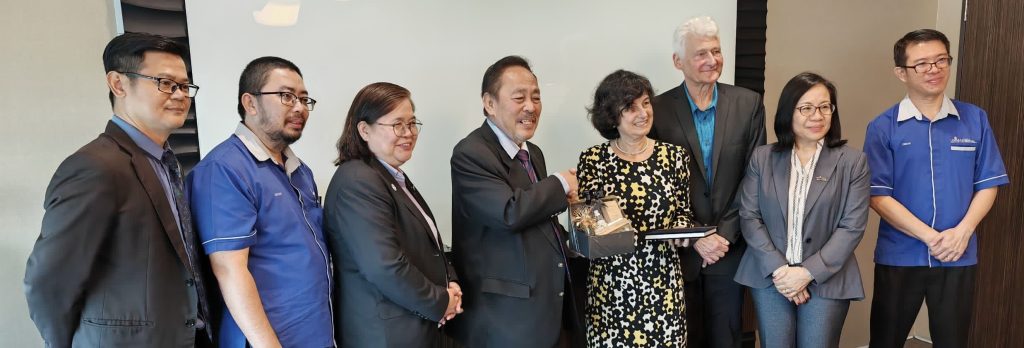
Kuching, 17 September 2024 – EURIDICE (partners UNIMAS, AKMC and VU) were invited by the Minister of Education, Innovation and Talent Development of Sarawak to discuss innovative education on Digital Society, in the light of the ongoing Digital Transformation. The EURIDICE project was presented to the Minister and his top-level staff and the European policies regarding digital technologies were discussed. Sarawak, Malaysia, as one of the rapidly growing economies in ... Read more
Is software engineering gender inclusive?

Bias towards otherness is a reality in platforms or applications, and can be discriminatory and often detrimental towards minority groups, for example in gender. Is this bias introduced already by design, as part of the software engineering methodologies? And can this bias be explored, mitigated and inclusiveness increased? This is the problem tackled in the master research project by Marcel Stelte, focusing on bias in software design, towards members from ... Read more
by
Are chatbots ready to replace humans in the workplace?
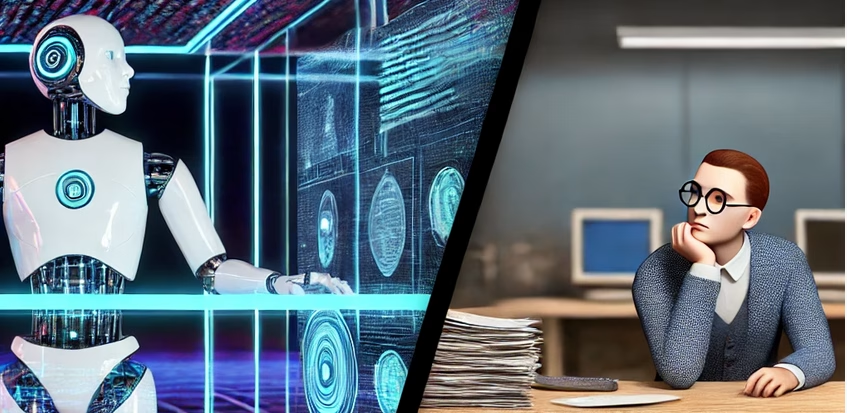
This recent master research project has tackled the question by observing and interviewing users in a large organization. Information Sciences student Sachira Tintar has tried to improve the responsivity of a chatbot, which is currently being implemented as a replacement for the usual helpdesk in the onboarding process of new staff. The first question is, evidently, if the chatbot – which is not equipped with a large language model such ... Read more
by
Can AI give African farmers better rain forecasts?
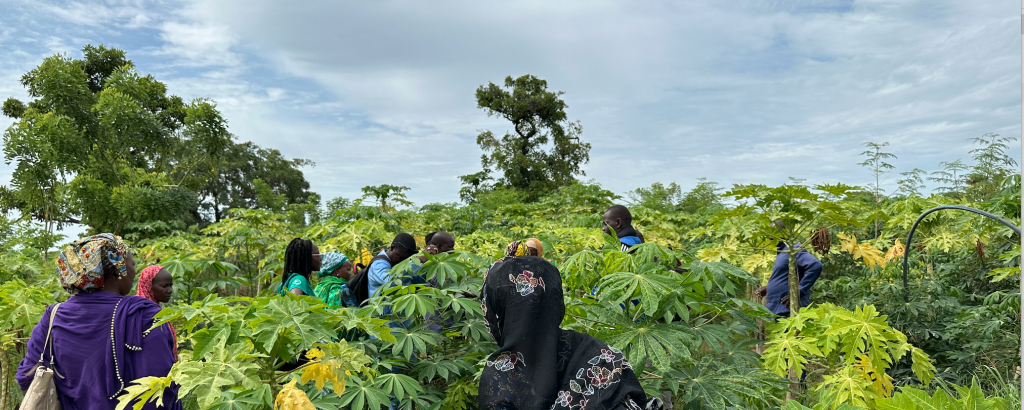
Artificial Intelligence is being used in many areas and fields of application. In ICT for Development we are piloting AI projects to find out how to make AI useful for people in low resource environments. The thesis of Tom Siebring is one of these endeavors. In the West African Sahel, rains are erratic, while farmers mostly rely on rainfed agriculture. Weather forecasts are often unreliable, due to the lack of ... Read more
by